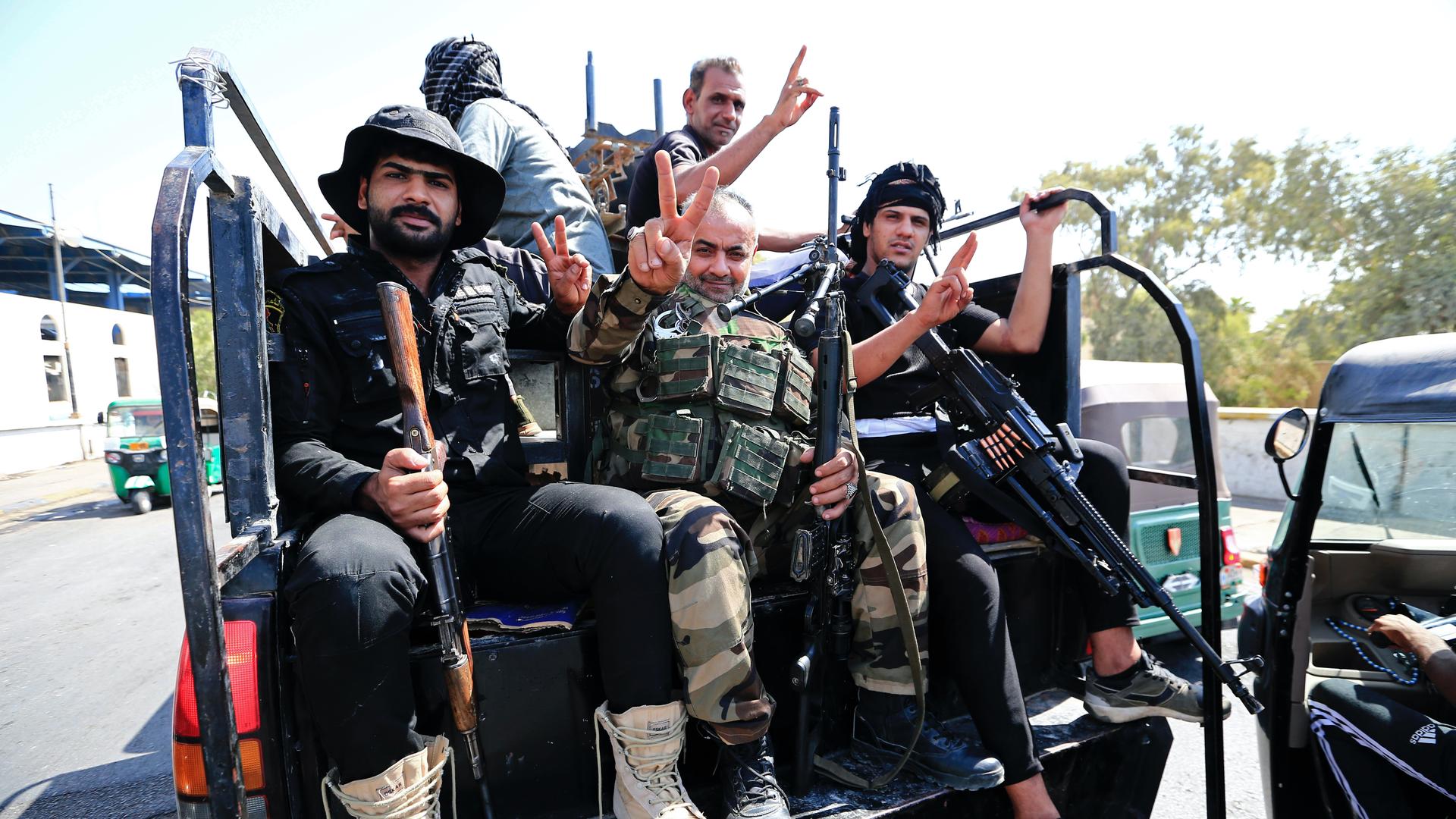Instability in Iraq has created a ‘culture of fear,’ experts say
Thirty-two year-old Safa Emad witnessed the clashes between Shia cleric Moqtada al-Sadr’s supporters and Iraqi security forces and other armed groups in Baghdad’s Green Zone on Monday.
From her apartment, she saw smoke rising from the area, and some bullets struck the windows of her neighbor’s apartment.
Had the situation gotten any worse, she said, she and her husband were considering leaving with their 5-year-old daughter. But after the Iraqi security forces imposed a curfew, they had no choice but to stay put.
Although the neighborhood is calmer now, she’s still worried about their safety.
“Things are very difficult in Iraq these days with the insecurity. It’s like we go from war to war, from one escalated situation to another,” she said.
The protests in Iraq this week is just the latest example of the instability in the country in recent months. Iraqi politicians have spent much of the past year fighting each other instead of forming a government.
Sadr won the majority of the Parliament seats in last October’s election. But the powerful Shia cleric wasn’t able to form a coalition because he didn’t want to negotiate a power-sharing agreement with other Shia leaders.
Instead, Sadr withdrew his lawmakers from the Parliament, demanded new elections and on Monday, said he is resigning from politics altogether.
In response, his supporters stormed the Green Zone. On Tuesday, in a press conference, Sadr called on his protesters to withdraw from the streets. They listened and left the area in armored vehicles while waving their weapons in the air. At least 34 people were killed in Baghdad and other cities.
“What we’ve seen since June is this kind of growing culmination and rift between al-Sadr and other established political elites in Iraq,” said Shamiran Mako, who teaches international relations at Boston University. “Between al-Sadr and other established political elites in Iraq, primarily Sunnis and Kurds but also, and I think importantly, other Shia factions.”
Some of these other Shia factions are supported by Iraq’s neighbor, Iran. In the past decade, the Islamic Republic has managed to gain considerable influence in Iraq through political and religious figures and armed groups.
Sadr has presented himself as anti-foreign intervention, and Mako said this has won him a lot of support among Iraqis.
“Iraq has a really high youth population. And the youth tend to kind of gravitate toward Moqtada al-Sadr because of his nationalist rhetoric. And his noninterventionist rhetoric.”
There was another resignation leading up to Sadr’s that is significant, said Ruba Ali al-Hassani, a sociologist and a postdoctoral fellow at Lancaster University in the UK.
Grand Ayatollah Kadhim Husayni al-Haeri, who is a marja’ or a source of emulation for Shia Muslims, said he no longer wishes to serve in this role. He asked his followers to instead look to Iran’s supreme leader for guidance.
The news raised some eyebrows, Hassani said.
“Marja’ actually don’t resign,” she said. “It’s a lifelong commitment. So, Moqtada al-Sadr replied that Haeri looks like he was coerced into resigning.”
Marsin al-Shamaray, a researcher at the Harvard Kennedy School, explained in a tweet that Sadr’s withdrawal from politics was a response to Haeri’s statement.
“Haeri is attempting to strip Sadr of religious authority [and] to redirect Sadrists who follow him to follow Khamanei,” she wrote.
Whatever is behind these two announcements this week, Iraq remains politically divided and without a permanent government.
“We still have a government that’s temporary, unelected and has no authority to pass any laws. There is no budget yet and it’s almost September,” Hassani said.
The instability has created a “culture of fear,” Hassani said.
“Iraqis feel very disrespected, demeaned, ignored, overlooked, unheard, dehumanized by the violence that is taking place.”
Boston University’s Mako warned that if these political tensions continue and unless there is a negotiated settlement, Iraq could get closer to a civil war.
In response to the clashes this week, the United Nations mission in Iraq called for calm and peace.
In a statement, it cautioned that the “very survival of the Iraqi state is at stake.”
